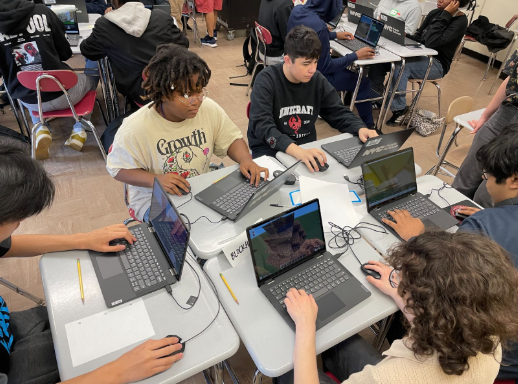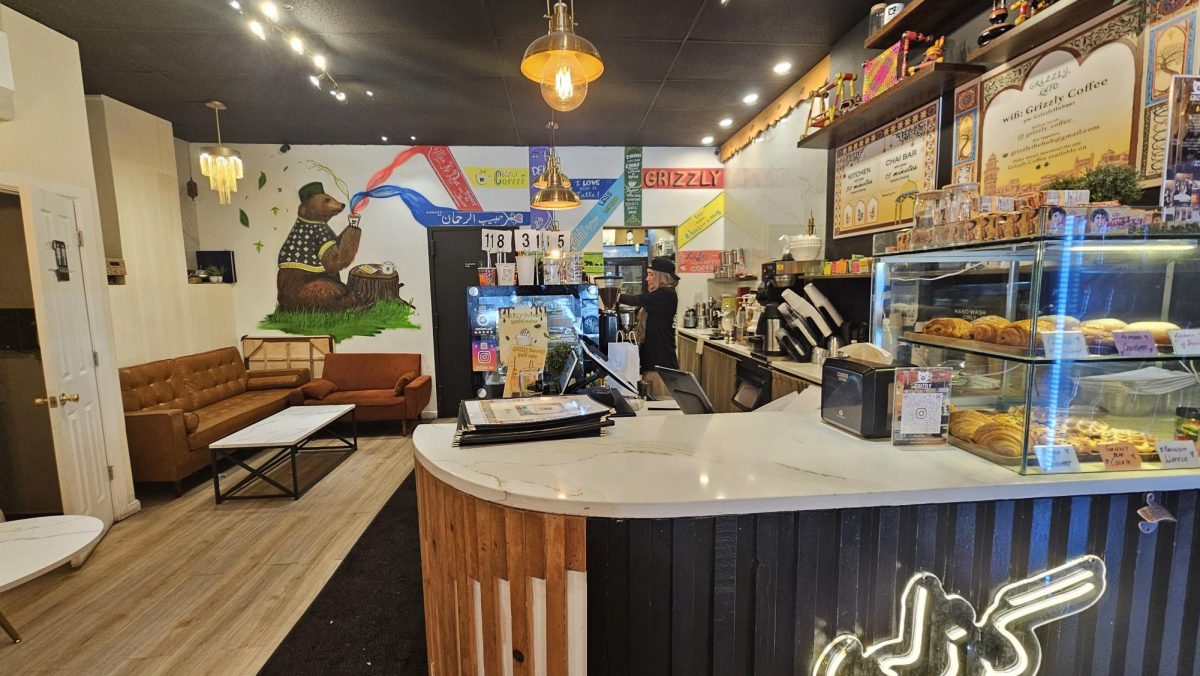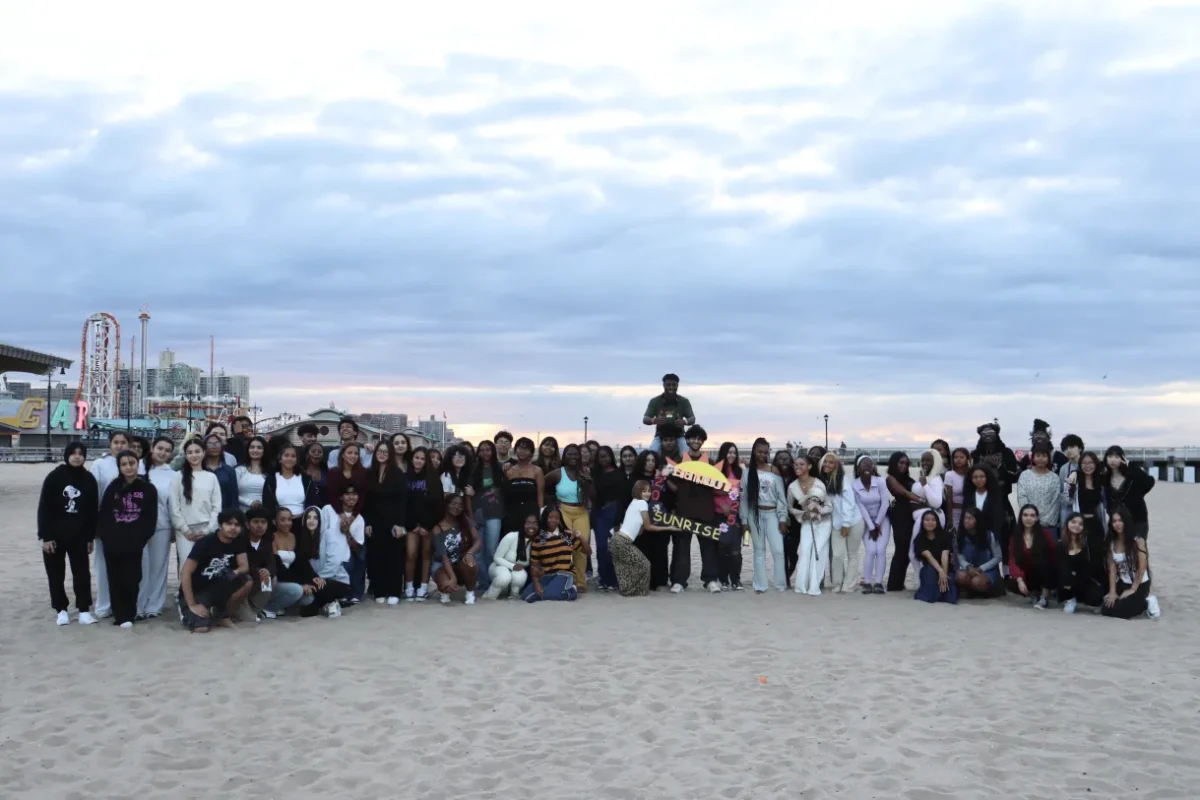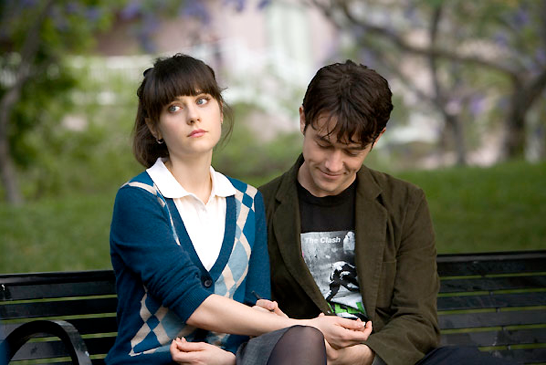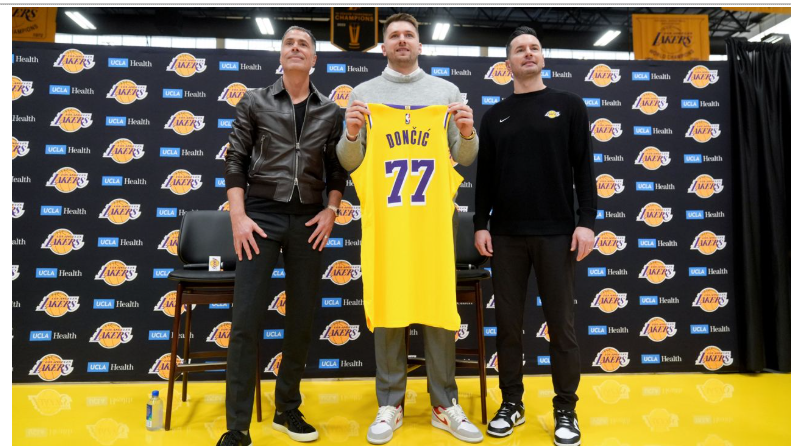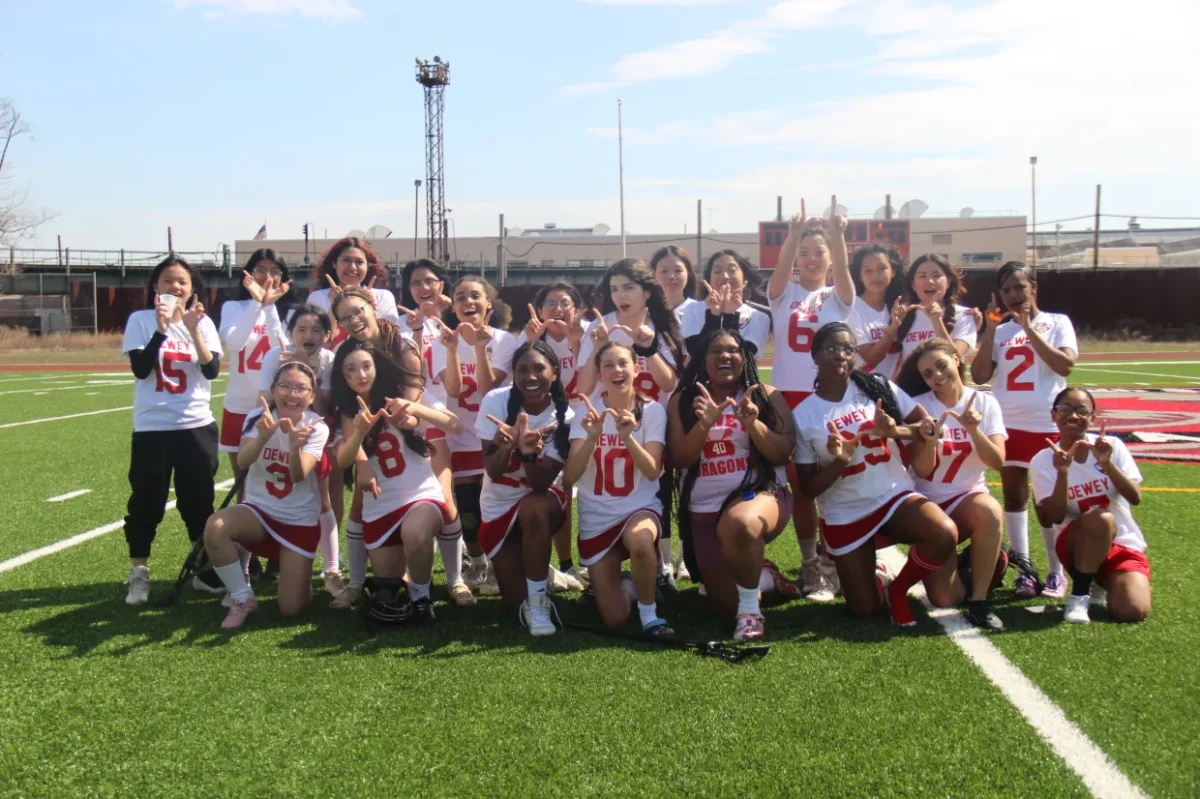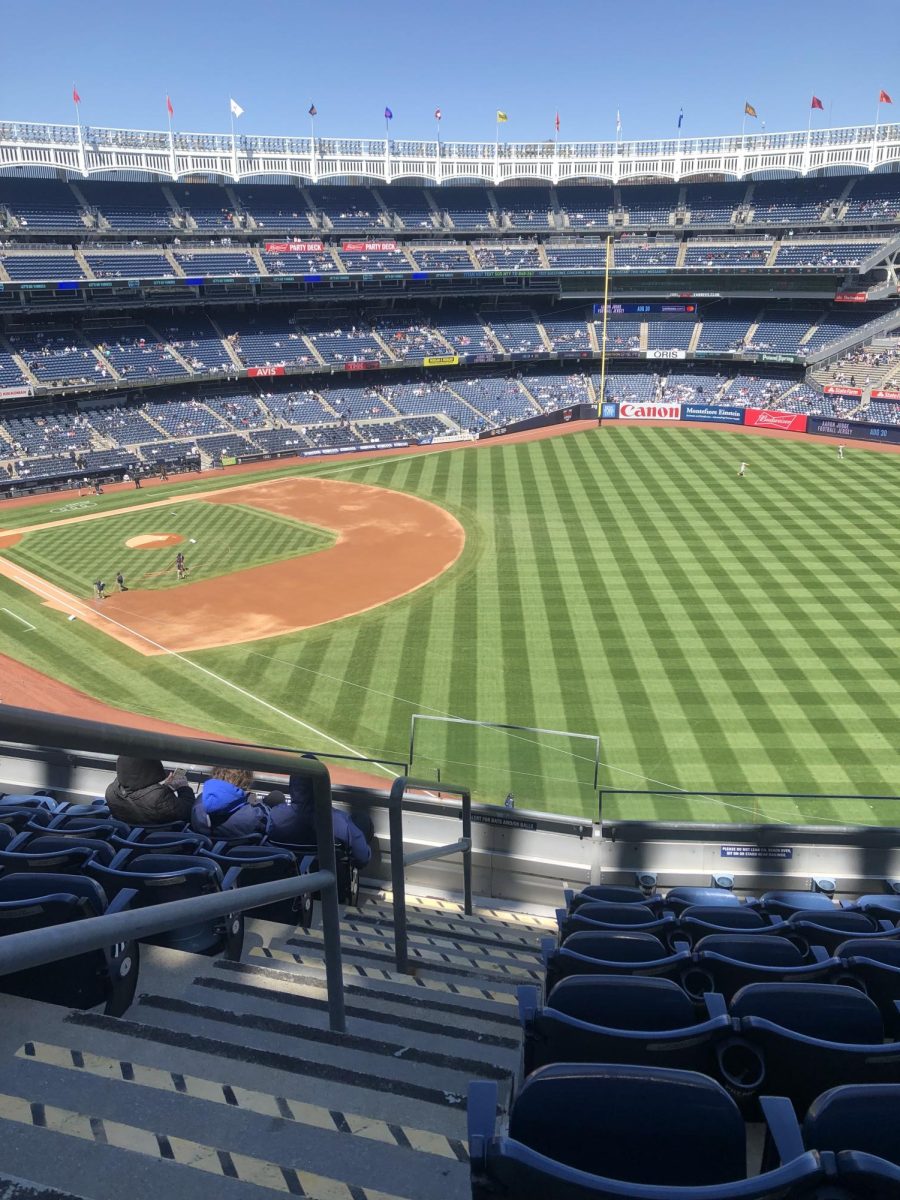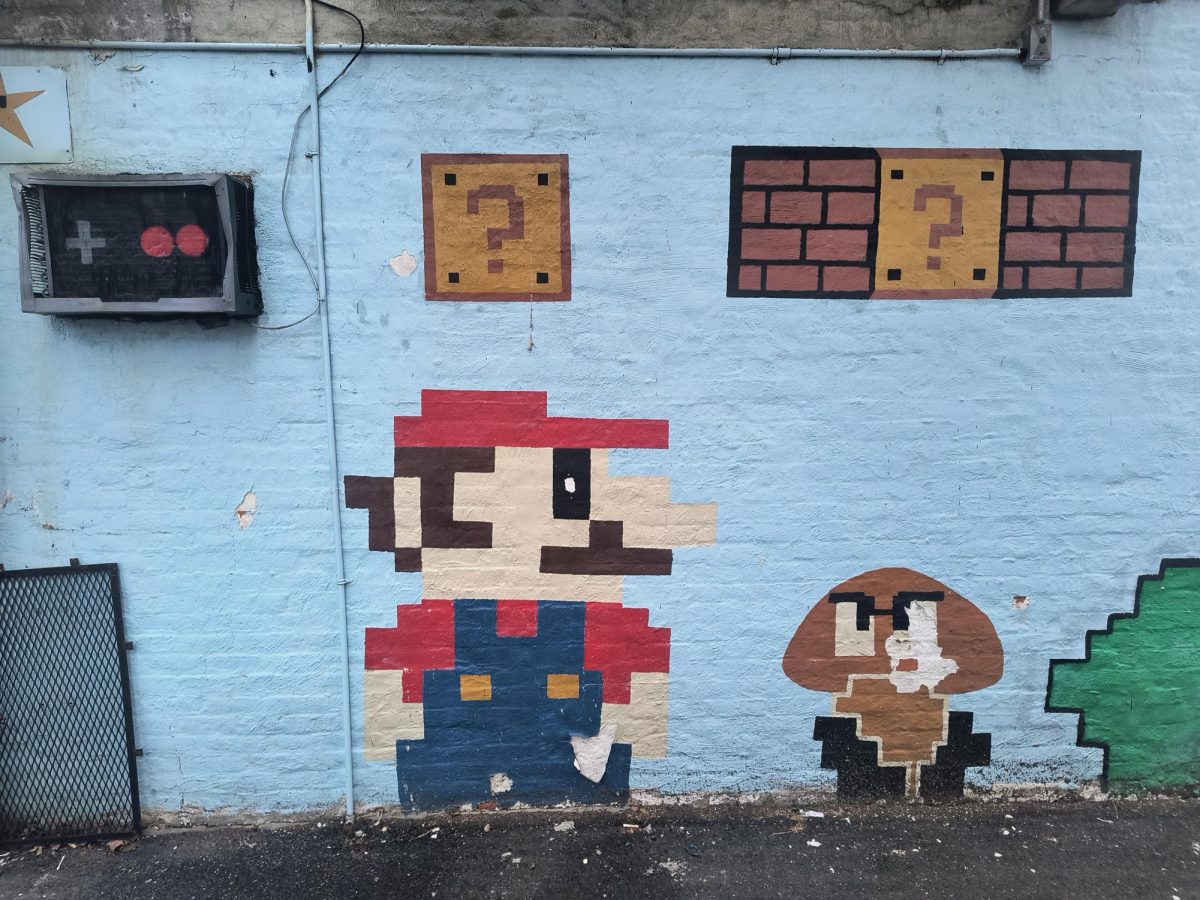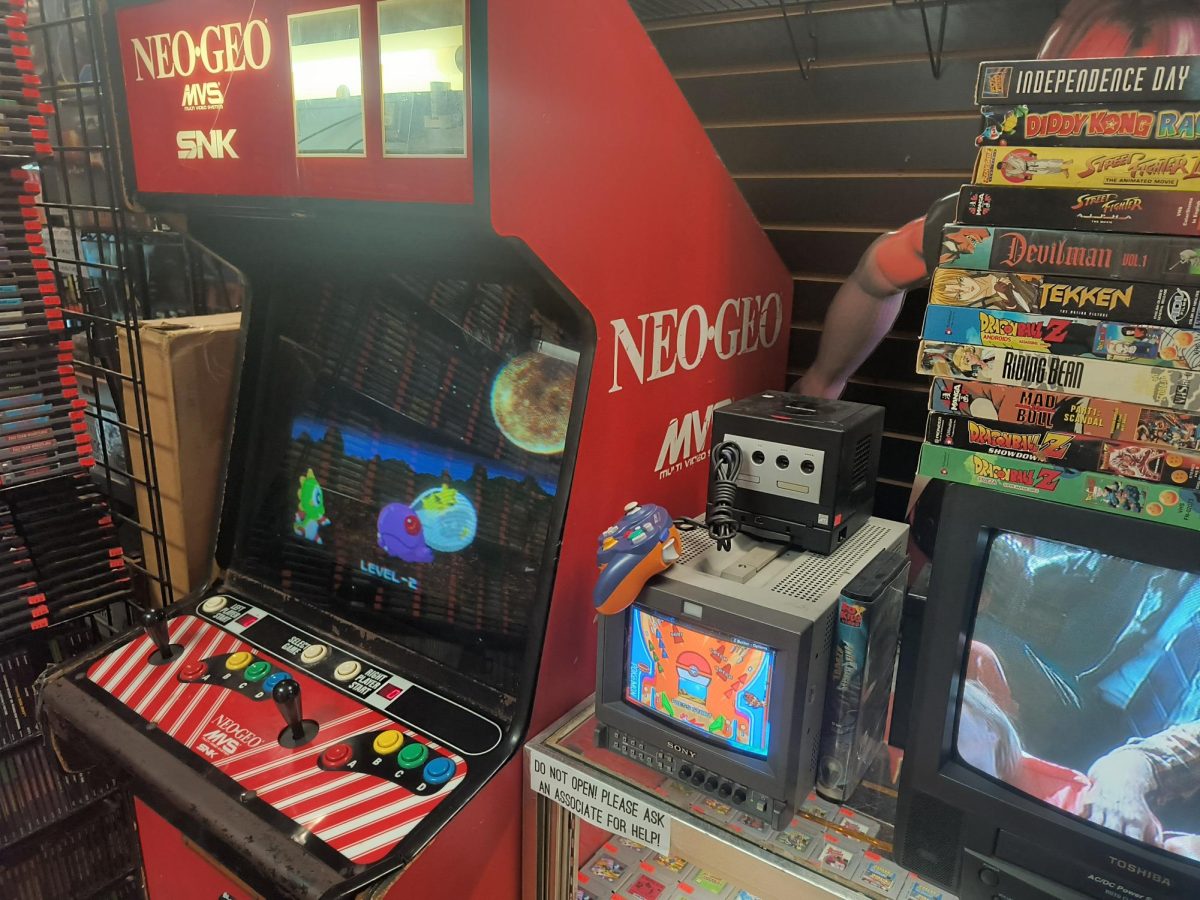BROOKLYN GAME SHACK
At 503 84th street sits a small store with a white awning, and that store is Brooklyn Game Shack.
From an outsider’s perspective it may come off as unassuming, maybe even a little sketchy, but looks can be deceiving, and the moment you step in you are met with one of the coziest stores Brooklyn has to offer.
You are greeted by the friendly and knowledgeable staff, finding yourself standing alongside shelves upon shelves of video game history, walls filled to the brim with posters, consoles of every generation of gaming history, from the NES all the way up to the Nintendo Switch, not to mention: Amiibos, Game Magazines, Box Sets, TVs, VHS Tapes, and so much more.
The store is a labor of love, and the amount of personality such a tiny store manages to hold is unmatched.
“I think it’s a great store!” as Michael Inoa, Journalism Adviser and avid Brooklyn Game Shack fan for a year and a half, describes “It’s very charming, although it’s tiny it has alot of character… every crevice and inch of the store is used in some purposeful or effective way.”
Second-hand game stores such as Brooklyn Game Shack are an essential part of the video game industry.
They are vital in trade of used games at reasonable prices, giving a legal avenue for people to obtain older video games that may not be accessible otherwise, and providing an alternative way of buying video games to those who may not be able to afford the latest consoles or games.
However, there has been a recent trend in the Video Game Industry that may put stores like the Game Shack at risk.
DIGITALIZATION
In recent years, many companies have gradually shifted away from physical releases, opting to have their content exclusively on streaming services and digital storefronts.
Additionally, many big retailers have been pulling physical discs from shelves. For example: Best Buy has stopped selling DVDs and Blu-Rays from all stores as of early 2024.
The rise of digital games have also been responsible significant shifts in gaming culture.
“I think it’s absolutely killed, in some ways, the rituals and rights surrounding gamers” Mr. Inoa recalls. “For example: when I was growing up, midnight releases were commonplace…people would queue up in front of a Gamestop or a Best Buy, in order to purchase it. And on those lines, there would be a huge sense of camaraderie. You would make friends on those lines, you would make memories on those lines… There would be people grilling food or playing video games together waiting for the next big release… There was a real sense of community, that digital gaming has completely erased, completely eradicated. While that’s been great for the convenience of a gamer, I think that’s also totally killed the culture and the celebration of gaming.”
There is also the fact that digital goods are not tangible objects. When you purchase a digital game, you’re buying a license to download and play said game. A license which can be revoked at any time, such as the account it was purchased on being banned. There is also no ways of selling or trading digital games, unlike physical discs and cartridges.
“I very much dislike it” says Jalen Finch, president of the Video Game Club at John Dewey High School. “Preserving physical stuff feels a lot more important, because it is always going to be there, unless publishers themselves take it off shelves. When it’s a physical thing, you have that thing for good, no one can take it away from you.”
If this trend of digital-exclusivity pushing physical goods off shelves continues, it has the potential to severely harm if not kill the secondhand market.
With no (legal) way of viewing digital goods from anywhere aside from firsthand sources, it could give large companies free reign to charge what ever prices they want, pull media without notice, and other such unprecedented levels of power.
“Having them move away from physical is actually gonna have a dramatic effect that a lot of us aren’t realizing” As Finch describes. “but when the time comes, we will realize, and we will probably regret that we didn’t preserve this stuff earlier, and it’s all just going to be a downward spiral. I hope that in the coming years this changes, but it is looking very unlikely. It’s just a bad look overall for everyone involved, even those who may not know they’re involved, it’s secretly affecting them as well.”
Despite all of the changes in the games industry and general gaming community, and how it may transform in coming years, local game stores like the Brooklyn Game Shack continue to shine like a beacon in the corporate landscape gaming begins to find itself in.
If you’re looking for something to play, have a little money to spare, want to support a local business, and be surrounded by people who share the love of video games- then look no further than the Brooklyn Game Shack on 84th street.

